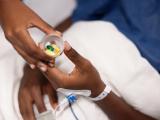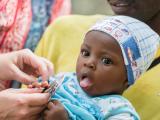An international group of infectious disease experts says the problem of antimicrobial resistance will never be solved without international staffing standards and a sustainable source of funding for antimicrobial stewardship (AS) teams.
In a commentary today in Clinical Microbiology and Infection, the experts contend that while AS teams are "essential actors" for combatting antibiotic-resistant bacteria and optimizing the management of infections in healthcare settings and the community, "they remain understaffed or non-existent" in most countries. And even in the handful of countries that require hospitals to have stewardship teams, as the United States does, there is little agreement on how much staffing is needed, and the requirement is not always enforced.
"We are serious about improving antibiotic use, and we can't achieve this without a sufficient number of well-trained experts…and sustainable, dedicated funding," lead commentary author Celine Pulcini, MD, PhD, a professor of infectious diseases at the University of Lorraine and Nancy University Hospital in France, said in a CIDRAP-ASP podcast.
Pulcini said that one of the reasons she and her colleagues felt it was time to have this conversation is because they all face a lack of funding for AS teams in their daily practice. She called the lack of awareness about the problem "very shocking."
Defining core stewardship activities
The problem, Pulcini and her co-authors explain, begins with the fact that few countries even have staffing standards for AS teams. A 2017 survey sent to members of the European Society of Clinical Microbiology and Infectious Diseases Study Group for Antimicrobial Stewardship revealed that only five nations—Australia, Germany, France, Canada, and the Netherlands—had staffing standards for hospital-based AS teams.
And among these countries, there is a wide range of views about what should be included in the list of core activities for AS teams. In some countries, core activities include only the supervision of stewardship implementation; in others, such as France, they include supervision and daily activities such as advice to prescribers. As a result, staffing standards also differ. French guidelines say AS teams should be staffed by 6.7 full-time equivalent (FTE) specialists (infectious disease physicians, pharmacists, and microbiologists) per 1,000 hospital beds, while German guidelines recommend 2 FTE per 1,000 hospital beds.
"A list of core AS activities needs to be agreed upon globally, in addition to the list of basic resources (e.g. diagnostics, pharmacy services) that must be in place for an AS programme to function properly," the authors write.
While Pulcini says that a multidisciplinary research effort is needed to first establish a set of core stewardship activities and staffing standards for hospital-based programs, these standards should ultimately apply to long-term care facilities and community settings, where the vast majority of antibiotics are prescribed globally. And they need to take into account that, in low-income countries, stewardship will rely more heavily on professionals who don't have specific expertise in infectious disease, such as nurses and community health workers.
A question of funding
Once core activities and staffing standards for AS teams have been established, the next steps are to figure out how much it would cost to fund these teams across different healthcare settings, and how to provide a dedicated and constant source of funding. The role of the funding, the authors write, would be to "train and retain core health professionals and provide essential support staff."
Pulcini and her colleagues argue that this funding can't be tied to how much money AS teams might save by reducing antibiotic costs. Rather, the funding should be linked to patient safety and healthcare quality, just as infection control programs are . "It's so risky to be tied to cost savings," Pulcini said. "It's not sustainable, because at some point you can't continue to decrease the cost of antibiotics."
Debbie Goff, PharmD, an infectious disease and antimicrobial resistance specialist at The Ohio State University Medical Center, agrees. "An ASP [antimicrobial stewardship program] is a patient safety and quality program that will result in cost savings when done right, but it should not be sold as an antibiotic cost savings program," Goff told CIDRAP News.
For example, effective management of a multidrug-resistant organism might require two antibiotics rather one, resulting in higher antibiotic costs. "If [the] ASP was just measuring the cost of antibiotics, the CEO would assume the program is failing when in reality the patient received effective therapy faster, and that's a good thing," she said.
Although the commentary does not delve deeply into the specifics of such funding, the concept of a global funding mechanism for stewardship is similar to the global innovation fund that's been proposed to drive research and development of new antibiotics. In both cases, the idea is that governments, non-profits, and international organizations would help finance these efforts for the public good. This kind of funding mechanism would be especially important in low- and middle-income countries, which might lack the financial resources to fund stewardship programs.
While funding for research and development into new antibiotics and diagnostics has gotten much of the attention, Pulcini and her colleagues believe that providing sustainable funding for stewardship is just as important, since any new antibiotic will need to be carefully managed to avoid overuse.
"We feel that the priority today is given to new antibiotics and new diagnostics, which are or course important," she said. "But they will not solve the problem of antibiotic resistance in the long term."
"Every country must start somewhere, and they must start now," added Goff. "People's lives are at stake."
See also:
Aug 1 Clin Microbiol Infect paper
























